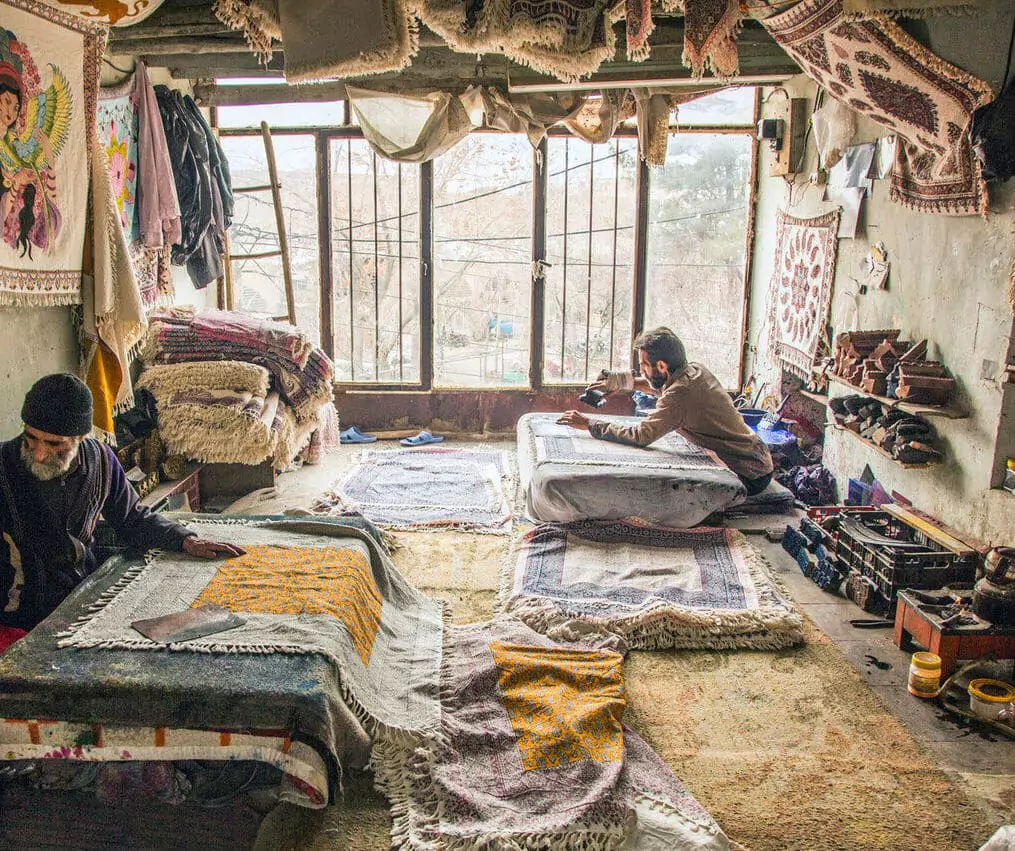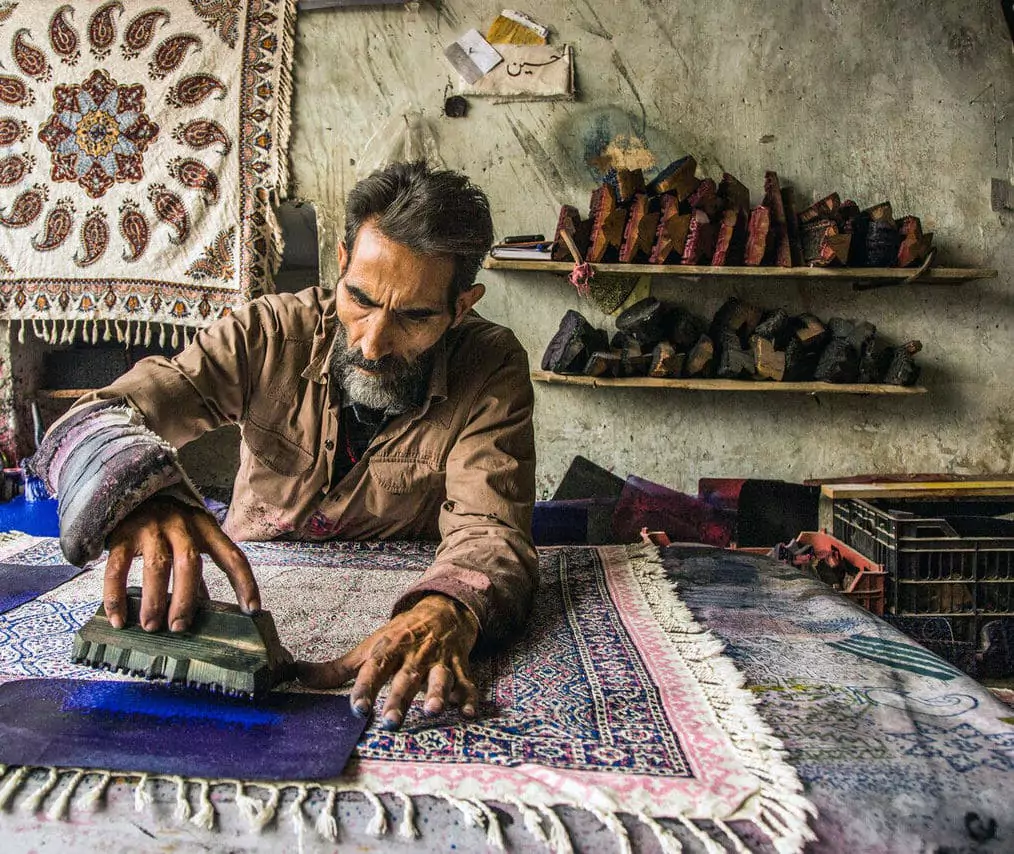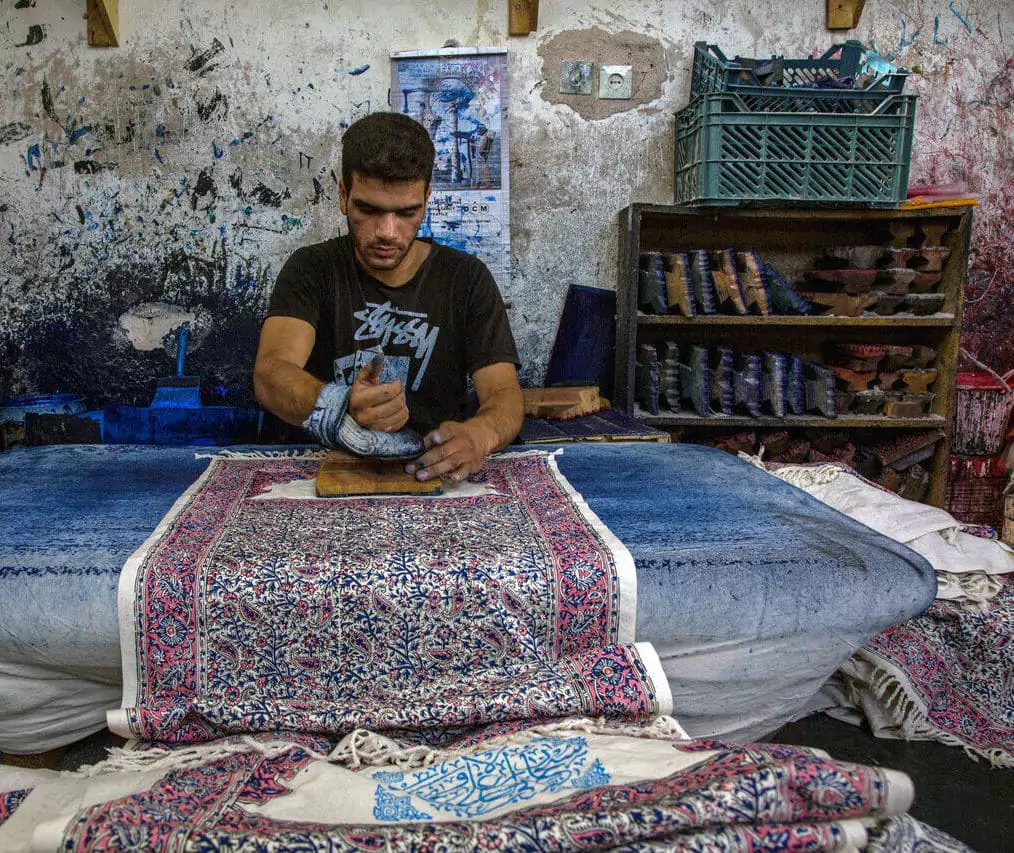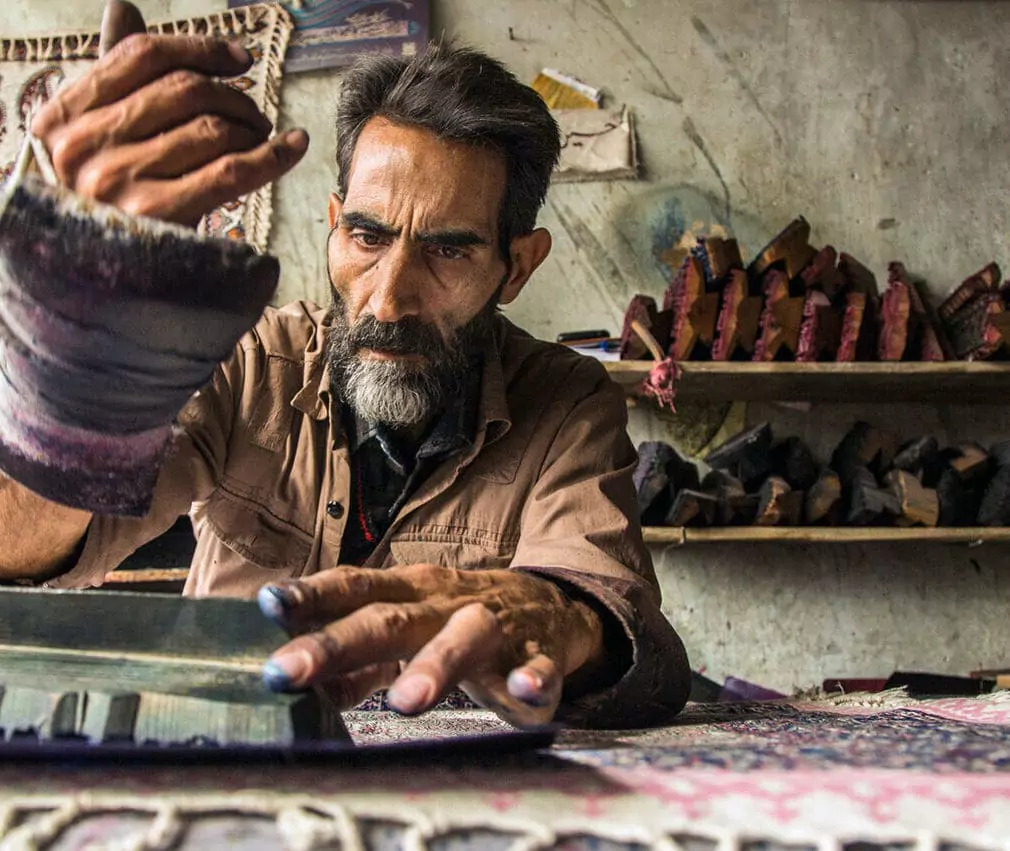More Than a Rug, an Act of Solidarity

Selection and Training of Artisans
We have selected our artisans in Myanmar and Afghanistan in partnership with local NGOs, focusing on skills, experience, and the need for economic support. We also provide training to enhance their skills and ensure the quality of each rug.
Remuneration and Social Impact
Each artisan is paid fairly, well above local standards, providing a stable income and significantly improving their quality of life. This remuneration directly impacts their community, contributing to education, health, and overall well-being.


Expansion to Palestine
Currently, our rugs are made in Myanmar and Afghanistan, but we are actively working to establish partnerships with artisans in Palestine. This will allow us to extend our support to more communities in need.
More Than a Rug, an Act of Solidarity
Our choice to work exclusively with artisans from persecuted Muslim communities is deliberate. It’s a way to acknowledge their talent, respect their cultural heritage, and support their fight for dignity and justice.

How long does it take to make a prayer rug?
Crafting a prayer rug is a meticulous process that requires high skill and attention to detail. On average, it takes about 10 to 20 hours to weave a rug.
How are artisans selected and trained?
Artisans are chosen for their traditional craftsmanship and belonging to persecuted Muslim communities. We collaborate with local organizations to identify the most skilled artisans. Once selected, they receive additional training to master the specific techniques needed to make our rugs. This training aims to preserve traditional methods while integrating modern design elements.
How does the artisans' remuneration impact their daily life?
Artisans’ remuneration is designed to be fair and equitable, ensuring a stable income that significantly impacts their daily life. By providing a reliable source of income, we help improve their living conditions, promote their children’s education, and strengthen the local economy. This enables communities to become more self-reliant and resilient.
Why have you chosen to work exclusively with persecuted Muslim communities?
Our mission is to support persecuted Muslim communities by offering economic opportunities and valuing their craftsmanship. By working exclusively with them, we help preserve their cultural heritage and provide the means for them to rebuild and thrive despite the challenges they face. This also raises awareness of their situation and contributes to positive change.

